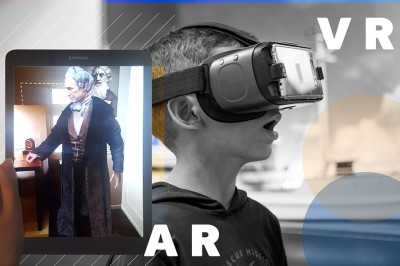Language & Symbols of Communication

Greeklish & New Forms of Discourse
A 1999 study on the use of Greeklish on the internet showed that 86% of respondents over the age of 45 found Latinized Greek "ugly" and "unaesthetic," while 71% considered it a "problem and threat" to the Greek language. In 2001, forty academics released a public statement-warning, highlighting the danger of the Greek language shrinking due to the widespread use of Greeklish in electronic communication. However, these fears were not confirmed — not only because new software released in the early 2000s included support for the Greek alphabet, leading to a reduction in the use of Latin characters, but primarily because language is a living entity. It transforms, evolves, and gives rise to new forms of discourse.

The Telegraphic Supercilious Style with Erratic Sounds
It is not the first time that the evolution of telecommunications has sparked concern about the decline of written language. The invention and spread of the telegraph in the mid-19th century imposed brevity and precision on language. Per-word charges prompted people to omit articles and unnecessary words, creating a concise and abrupt style. Messages relied on keywords to convey essential information at minimal cost. Linguistic economy aligned with the medium’s demands. Communication theorist Marshall McLuhan writes: “The telegraph broke language away again from the printed word, and began to make erratic noises (…), phenomena that still dismay the literary community with its mannerisms of supercilious equitone that mime typographic uniformity.” (Understanding Media: The Extensions of Man, 1964)

Email / Chat / SMS / Emojis / Avatars
“The Medium is the Message” – Marshall McLuhan
With the advent of the internet ‒especially email and chat‒ written language began to take on more spoken characteristics. Users adopted abbreviations, emojis, and English terms, while the tone became more spontaneous. The speed of communication made grammar and spelling... just the basics. The mobile phone, with SMS and messaging apps, solidified these new writing conventions. Messages became even shorter, the tone more personal, and language took on new symbols. In the world of gaming especially, with the rise of avatars, language became embodied — while video sharing brought non-verbal communication (facial expressions, gestures) to the forefront, particularly among younger generations.
Marshall McLuhan argued that every medium of communication transforms the way we think. Telecommunications didn’t impoverish language — they made it different: perhaps less eloquent, but certainly more creative.

Photos:
- Cover of Thesaurus magazine, 1950s.
- Electronic correspondence in Greeklish.
- Interwar-era telegram written in Greeklish.
- Communication through emojis. A digital tool teaches people a language made of icons.






